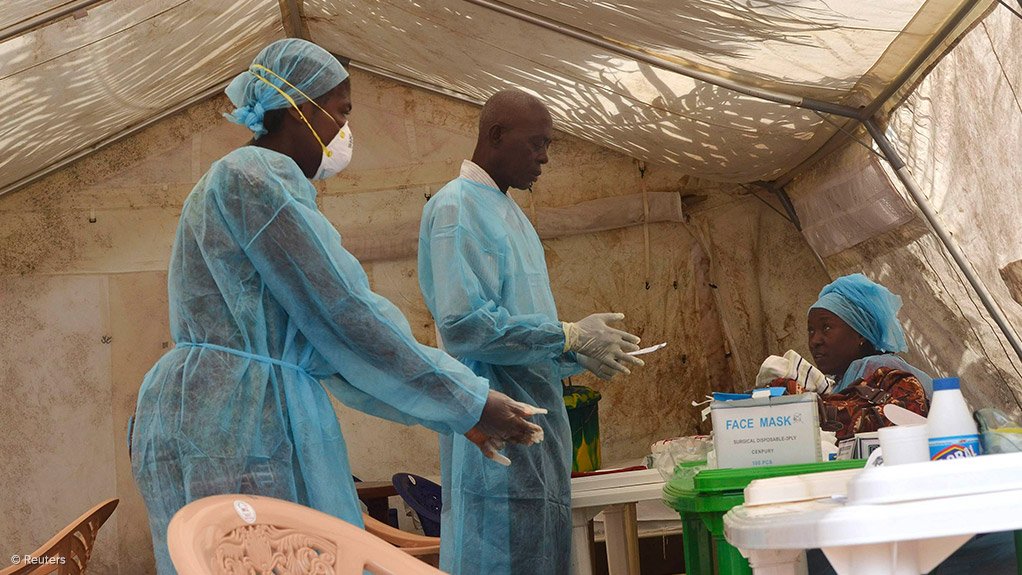Will bathing in hot water and salt save you from Ebola? Or eating kola nuts? Perhaps a homeopathic solution concocted from rattlesnake venom? These are some of the claims that have gone viral as the death toll exacted by the Ebola virus in West Africa has mounted in recent weeks.
Are these in fact cures, palliative treatments or simply hoaxes? A number of readers asked us to check the claims they made.
What is Ebola?
Ebola is an often deadly virus which claimed its first known victims in 1976 in what is today the Democratic Republic of Congo.
Since then, outbreaks have primarily been confined to central Africa but in February 2014, a new outbreak was found in the southeastern forests of Guinea. And since then it has spread to Liberia, Sierra Leone, and more recently Nigeria.
As of 6 August 2014, the World Health Organisation has recorded 1,779 confirmed or probable cases, resulting in 961 deaths, and declared an “international health emergency”.
The “possible consequences of further international spread are particularly serious in view of the virulence of the virus, the intensive community and health facility transmission patterns, and the weak health systems in the currently affected and most at-risk countries,” the WHO warned.
Is there a cure?
Other than time, there is as yet no known cure. As the science writer David Quammen, who has investigated the origins and spread of the virus, writes RNA viruses such as Ebola “produce acute infections, severe for a short time and then gone. Either they soon disappear or they kill you.”
Currently, researchers are working on a vaccination, with pharmaceutical company GlaxoSmithKline announcing that they hope to start with clinical trials in humans later this year. An experimental drug given to two American missionary workers is also raising hopes. But, for now, there is no cure.
What about ‘cures’ and ‘treatments’ offered online?
In Nigeria last week, a rumour was spread online and via a BBM message that bathing in warm, salty water was an effective treatment.
“Please ensure that you and your family and all your neighbours bath with hot water and salt before daybreak today because of Ebola virus which is spreading through the air,” the message read.
A Twitter user from Lagos relayed another version of the rumour: “Mum got this text msg. ‘Take Your Bath With Dettol, Salt & Hot Water Before 7am 2day, Ebola Is Now Air-Borne 4 More Text EbolaNews to 35777’ ”
Earlier, Nigeria’s The Sun newspaper reported that “a plant has been found to halt the deadly Ebola virus in its tracks in laboratory tests”. They were referring to kola nuts. But the story was simply a recycled BBC report from 1998 which reported on research at that time suggesting that extracts from kola nuts might offer a solution. Medical groups later refuted the claims.
Over the weekend, a popular blogger outlined a number of what he described as homeopathic ”remedies” that were “highly effective in epidemics”, telling readers “you will find the means to help you survive an Ebola virus infection” on his blog.
Conclusion: Current ‘cures’ and ‘treatments’ are exploitative hoaxes
As we have explained in a factsheet on Ebola, the disease is definitely not airborne. It is spread through direct contact with the blood and secretions of an infected person, or an object that has been contaminated with bodily fluids, such as a hypodermic needle.
And, as yet, there is no known cure for the virus and the cures being touted online and in newspapers are little more than cruel and unethical hoaxes.
Given the seriousness of the outbreak, it is important that people are not misled. If readers see any additional fake ‘cures’ or treatments proposed, please get in touch, and we will update this report.
Click here for the original article with click-throughs
Researched by Africa Check
Edited by Peter Cunliffe-Jones
First published by Africa Check, a non-partisan organisation which promotes accuracy in public debate and the media. Twitter: @AfricaCheck and website: www.africacheck.org
EMAIL THIS ARTICLE SAVE THIS ARTICLE
To subscribe email subscriptions@creamermedia.co.za or click here
To advertise email advertising@creamermedia.co.za or click here











